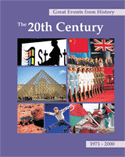 Try our Online Reference Chat Service
Try our Online Reference Chat Service Real People -
Real Help -
Real Fast -
http://www.swccd.edu/~library/ask.htm
Southwestern College Library Announcements, Events, and News!
 Try our Online Reference Chat Service
Try our Online Reference Chat Service  The library provides a display of over 50 current magazines and periodical titles in our New Books and Current Periodicals display area near the entrance of the library.
The library provides a display of over 50 current magazines and periodical titles in our New Books and Current Periodicals display area near the entrance of the library.You'll find the most recent issues of various magazines and journals in this section.
 To view our complete list of periodicals, use our online Periodicals Holding List
To view our complete list of periodicals, use our online Periodicals Holding List Approximately 1,500 images of Islamic Art have been added to the ARTstor digital library. These images illustrate patterns and designs found throughout the Islamic world, from the Middle East and Europe to Central and South Asia.
Approximately 1,500 images of Islamic Art have been added to the ARTstor digital library. These images illustrate patterns and designs found throughout the Islamic world, from the Middle East and Europe to Central and South Asia.

 Daily Life Online is a fascinating database on social history throughout time and throughout the world. Information is retrieved from books, articles, selected websites, primary documents, images, and maps.
Daily Life Online is a fascinating database on social history throughout time and throughout the world. Information is retrieved from books, articles, selected websites, primary documents, images, and maps. With the 2008, presidential election racing towards election day on November the 4th, the Voting America project from the University of Richmond’s Digital Scholarship Lab provide users the ability to visualize and analyze previous presidential election data back to 1840.
With the 2008, presidential election racing towards election day on November the 4th, the Voting America project from the University of Richmond’s Digital Scholarship Lab provide users the ability to visualize and analyze previous presidential election data back to 1840. 
 With Issues and Controversies in American History, history comes to life and help builds a deeper understanding of how historical events have shaped our nation by exploring the key players and the battles they fought.
With Issues and Controversies in American History, history comes to life and help builds a deeper understanding of how historical events have shaped our nation by exploring the key players and the battles they fought. ARTstor, in collaboration with Douglas Massey, has recently added 170 images of Mexican retablos to the Digital Library. Retablos are small, colorful oil paintings made on tin and offered as votives of thanks for miracles granted and favors bestowed.
ARTstor, in collaboration with Douglas Massey, has recently added 170 images of Mexican retablos to the Digital Library. Retablos are small, colorful oil paintings made on tin and offered as votives of thanks for miracles granted and favors bestowed.

Getting Started
The Southwestern College Library now offers syndicated news feeds of some of its web content in the RSS format. RSS, or Really Simple Syndication, allows anyone with Internet access to keep up to date automatically with what is happening at the Southwestern College Library.
Subscribe to Southwestern College Library Feeds
![]() What's New @ SWC Library
What's New @ SWC Library ![]() New Books @ SWC Library
New Books @ SWC Library
Using a news reader application, you can subscribe to any SWCL feed by following the subscription directions of the particular reader, or by clicking on the icon in the address box of RSS compatible web browsers like Firefox or Safari. Some of the more popular readers are Digg, Feedly, Newsblur and Newsvibe. News reader applications and browsers differ in how you may subscribe to a feed, so please consult your reader's help section if you are having problems.